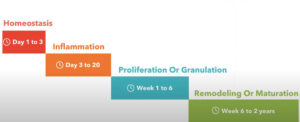
Dr. Andrew Gorecki, hip pain specialist, discusses the most common and significant mistake that people make who are dealing with hip issues.
How can we handle hip pain as a problem? The first thing we can do is ignore it. That doesn’t mean we’re not expressing ourselves—complaining to our spouse, friends and family, probably even talking to our doctor about it. But we just haven't done anything yet. We’re hoping the pain is just going to go away. However, a cumulative trauma disorder, which is what most hip problems are, actually gets worse if we ignore it.
The second thing we try to do with hip pain, is mask it. And our health care system is great at providing ways for us to change the way our hip pain feels. Pain medications and injections do this. They alter our brain's perception of pain, but they do nothing to solve the cause of the pain. Anti-inflammatories suppress the body's natural inflammation, lessening the pain we feel. But we need inflammation to heal, so limiting that process isn’t always a good idea. Then there are all of the “treatments”: creams, ointments, braces, lasers, ultrasounds, even massage. For the moment they lessen the pain and make you feel warm and fuzzy. But they don’t provide long-lasting relief.
By ignoring the problem or masking the symptoms, we make the single biggest mistake we could make. We don’t get to the root cause of our hip pain. So we never get rid of it, we suppress healing and make things worse over time.
All hip pain has this in common: there's a level of inflammation that's occurring. Once there is an injury, there are four phases to the healing process. This is true after any type of tissue damage to the body.
- Day 1-3: Homeostasis, where the body stabilizes the injury
- Day 3 – 20: Inflammation, used by the body to heal
- Week 1 – 6: Proliferation or Granulation, where the body creates new connective tissue and blood vessels to replace damaged tissue
- Week 6 – 2 Years: Remodeling, where the body creates and reshapes connective tissue at the injury site
If we don't let our body go through the inflammation phase, healing cannot progress like it should. By taking anti-inflammatories, we are suppressing that healing. If you were to have surgery, the surgeon would tell you not to take anti-inflammatories two weeks prior to surgery and up to six months after surgery don't take them because it will delay the healing process
The Doctors of Physical Therapy at Superior Physical Therapy can find out and address the root dysfunction that is causing your hip pain. You will get rid of your pain and be empowered with ways to keep the pain away. In the process, you will become stronger and healthier. Give us a call today to schedule a FREE assessment. 231-944-6541.
Watch the Video:




